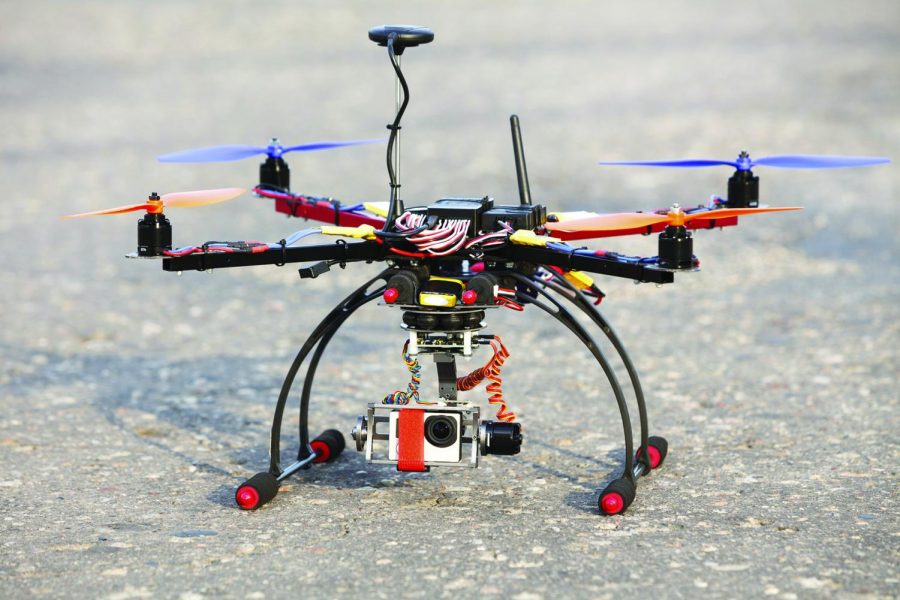City Council votes to regulate drones
November 20, 2015
The City Council approved legislation Nov. 18 to regulate the use of small and unmanned aircrafts, or drones, in the city.
The bill, introduced by Alderman Scott Waguespack (32) and Alderman Edward Burke (14), bans the use of drones within 5 miles of an airport, above any church or school or higher than 400 feet.
Waguespack and Burke, along with members of their staff, declined to comment on the bill, referring to a Nov. 18 press release by Waguespack’s office that said drone operators would additionally be subject to “a wide range of regulations governing their use within the city limits.”
The approved ordinance also states operators may not fly drones directly over another person or their property without prior consent. They also may not fly drones between dusk and dawn, out of their eyesight or near water and electric facilities.
Additionally, the ordinance bans drones for commercial or surveillance uses.
Violating these regulations could result in fines of up to $5,000 or 180 days in jail.
Waguespack introduced other bills related to drones in the past, but this bill, cosponsored by Burke, was the first to pass. It originally banned drones within a quarter-mile of schools or hospitals but was altered to ban them only directly over those buildings.
Waguespack’s primary concerns are that drones cause collisions in Chicago’s busy airspace, but solutions to those concerns may be on the way. Lei Shi, an electrical engineering doctoral student at the University of Kansas, formed a startup company to develop radar technology for drones.
“Safety is a critical concern when it comes to operating drones, especially in populated areas like Chicago,” Shi said in a Nov. 18 emailed statement. “The radar technology we’re working on is a significant step toward drone safety.”
Troy Walsh, founder of Drone Media Chicago, applauded the city for creating model legislation for other cities to follow, rather than outlawing them entirely. However, he said the city needs to ensure it does not limit the positive impact drones could have.
“It’s going to fall back on the city to make sure we are not stifling the growth and impact [drones] can provide,” he said.
Walsh said law enforcement agencies are considering using drones to aid in dangerous or difficult operations, like search and rescue operations.
“We are at ground zero,” he said. “We are at the tipping of the iceberg as far as what drones will be used for.”
The ordinance states that drones may not be used “for business purposes and not for compensation or hire.” This could hurt Chicagoans already using drones for professional purposes, such as real estate agents who use drones to capture photographs of properties.
“It will have a big impact on the agents in the Chicago area,” said Scott Gerami, a Re/Max broker.
Gerami has used drones to create virtual tours and interactive arial maps of his properties.
“Taking a photo of a house from the air gives a different perspective,” he said.
The ordinance states its regulations do not apply to citizens who have received an exemption from the Federal Aviation Administration. Gerami said he hopes to receive the exemption for his business.








